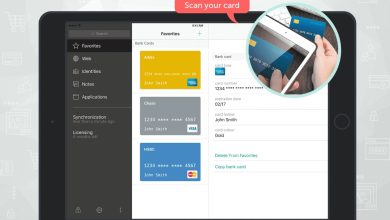Fraud Costs in Retail and Financial Services Have Increased More Than 30% in Singapore Since 2019 According to a Study by LexisNexis Risk Solutions

LexisNexis® Risk Solutions released its LexisNexis® True Cost of Fraud™ Study that analyzed current trends in retail, ecommerce and financial services/lending. The study identified pain points related the adoption of new digital payment methods and transaction volume in Singapore. The LexisNexis Fraud Multiplier™ determined that for every U.S. $1 (S$1.37) lost to fraud now costs Singaporean organizations $3.91 (S$5.39).
The research surveyed 91 Singaporean risk and fraud executives and showed that the financial services industry incurred the highest cost in the country. Every $1 (S$1.37) lost to fraud actually costs financial services firms $5.09 (S$7.01) compared to $3.88 (S$5.35) in 2019, up 31% from three years ago. This is largely attributed to account takeover fraud and SMS and phishing scams targeting customer identity information and account access credentials.
A large majority of Singaporean firms indicated that the pandemic increased transaction volumes through mobile and digital channels, especially for e-commerce firms. Almost all firms surveyed offer mobile web browsers, third-party apps and/or branded apps, which combined accounted for 84% of mobile transactions. Ecommerce firms also reported a higher increase in fraud for mobile transactions. Third-party synthetic identity and friendly first-party fraud made up a sizeable proportion of fraud losses.
Key Findings for Singapore from the 2022 True Cost of Fraud Study – APAC Edition:
- Digital and Mobile Transactions Soar – Singapore is generally a cashless society with the availability of a wide range of digital and mobile payment channels. Digital wallets recorded a significant jump in transaction volumes, representing 22% of all payment methods. Mobile apps are the largest source of fraud costs while some ecommerce businesses reported a 10% increase in fraudulent mobile transactions.
- Fraud Detection Hurdle – Retail and ecommerce firms are more likely to experience fraud detection and prevention challenges during digital wallet transactions. Survey respondents ranked these types of transactions as the most common challenge in the fraud detection and prevention process due to lack of information about payment service providers’ customers.
- Percentage of survey respondents identifying fraud detection challenges by type during digital wallet transactions:
- Lack of identity information about payment service providers’ customers – 69%
- High volume of transactions – 61%
- Ensuring that payment service providers are acting in compliance with regulations – 58%
- Review of large number of false positives – 55%
- Difficulty in determining transaction location/origination – 52%
- Percentage of survey respondents identifying fraud detection challenges by type during digital wallet transactions:
- Fraud Management Framework – Respondents indicated that only 25% of surveyed firms have integrated cybersecurity into fraud prevention processes.
“Digital wallets are becoming the norm for day-to-day transactions in Singapore as evolving consumer behavior continues to drive the industry towards cashless channels,” said Thanh Tai, director of fraud and identity strategy, LexisNexis Risk Solutions. “We are seeing a high volume of fraud attempts that follow a continued shift towards mobile and digital transactions. Businesses must fully integrate a fraud detection and prevention program with both physical and digital identity attributes while enhancing digital customer experience to stay ahead.”
Methodology
The True Cost of Fraud APAC study surveyed 387 risk and fraud executives in retail, e-commerce and financial services/lending across Malaysia, the Philippines, Singapore and Thailand. Singapore had 91 respondents. Data collection occurred during February/March 2022 and survey questions reference the past 12 months.
Download a copy of the True Cost of Fraud Study – APAC Edition or register to attend the LexisNexis Risk Solutions True Cost of Fraud APAC webinar on Tuesday, 19 July, 11 am SGT to learn more.




